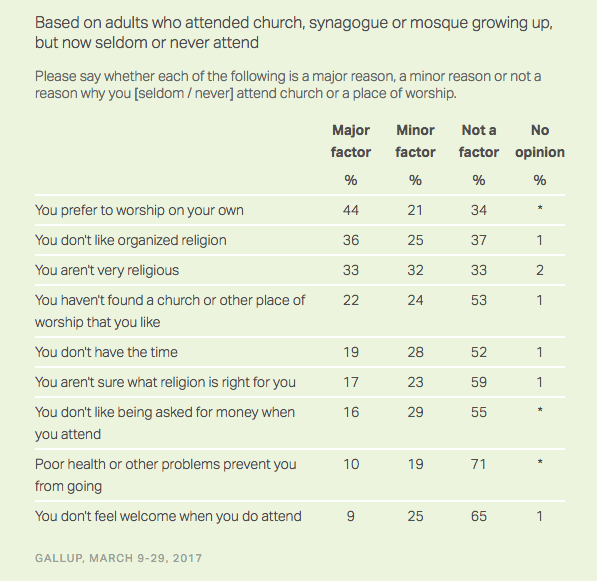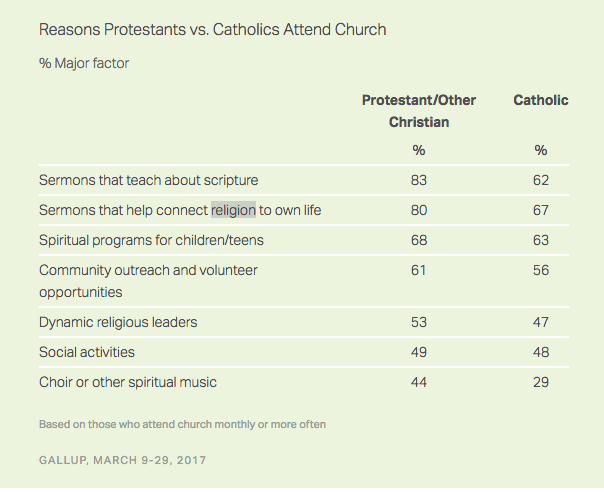In our adult Sunday School classes at Capitol Hill Baptist Church, we ask teachers to use a manuscript and most of the classes are lecture format. As a result, our teachers sometimes think that all we care about is good content, and it doesn’t matter if they are boring. Quite the contrary. Engagement and insight are critical aspects of teaching, even for laypeople teaching adult Sunday school classes. Content isn’t everything.
Why? Here are three reasons why adult Sunday school teachers of the Bible shouldn’t be boring—and four strategies to avoid boring teaching.
REASON #1: GOD IS INTERESTING
As Martyn Lloyd-Jones put it: “There is something radically wrong with dull and boring preachers. How can a man be dull when he is handling such themes? I would say that a ‘dull preacher’ is a contradiction in terms. . . . With the grand theme and message of the Bible dullness is impossible.”[i]
What is more beautiful, more awe-inspiring, and more rewarding than intensely studying the glories of our Savior, his work on our behalf, and his perfect plans for us? Jesus described teaching as bringing out treasures from a house, both new and old (Matt. 13:52). Boring classes reflect poorly on the magnificent treasures we teachers get to talk about.
REASON #2: TEACHERS SHOULD BE GENTLE
Paul in 1 Timothy 3:3 tells us that elders are to be gentle with those they oversee. And if a church’s primary teachers should be gentle, shouldn’t others who teach aspire to that same goal?
Part of being gentle means meeting your people where they’re at. Very often, the people who show up for your classes on Sunday morning are tired, distracted, and discouraged. That’s real life. A gentle teacher will recognize that and draw the class into the day’s topic rather than simply assuming interest.
REASON #3: TEACHERS SHOULD BE LEARNERS
When teachers are boring, it means that either they themselves have not been captured and moved by the awesome truths they teach or they are unskilled at sharing such amazement with their class. Usually, the problem is the former. “Oh the depth of the riches and wisdom and knowledge of God!” Paul exclaims (Romans 11:33). How can we not also be moved when we encounter the wisdom and knowledge of God?
As a result, boring teaching cannot be addressed merely with tips and tricks for better classroom engagement. Very often, at the root of boring teaching are teachers who themselves must comprehend the glory of what they teach before standing up in front of a class.
To that end, here are three strategies for helping adult Sunday school teachers (especially lay teachers) become more engaging in their teaching.
STRATEGY #1: ASK WHAT EXCITES YOU
Before getting up to teach, a teacher should always ask, “What are the two or three truths I’m about to present that I’m most excited about?” Mark those in the notes, and be sure to emphasize them in teaching. The class knows that the teacher has spent more time looking at the material than they have; when a teacher points out what was most impactful during that time of preparation, people will generally share that enthusiasm.
By the way, this is a good standard for knowing when you’re prepared enough to teach your class. Do you struggle to come up with two or three truths you’re excited about? If so, you’re probably not yet ready to teach.
STRATEGY #2: INTERACT WITH YOUR CLASS
One reason why classes at my church are in a lecture format is because we’ve designed our adult Sunday School program to be an easy on-road to teaching—and it takes less skill to manage a lecture than to manage an unpredictable class-wide discussion. In other words, we’ve designed our classes to be a teacher-training factory; we’ve designed them for inexperienced teachers.
But just because the classes are formatted as lectures doesn’t mean that we don’t want to hear from the class. A skilled teacher will know this innately; newer teachers will need a nudge in this direction. In particular, newer teachers need to be reminded that the best classroom discussion generally happens not in response to a student’s question but in response to a well-designed question posed by the teacher to the class.
A good question has multiple right answers, it’s clear, and it’s simple to ask (if it’s too long for you to ask it without looking down at your notes, it’s too long). A good teacher will include at least a few of these in a class, especially at the beginning when people need to be lured into engagement with the material.
By the way, don’t forget to call on people by name. Or ask them their name if you don’t know it—even if you’re embarrassed that you don’t remember their name because they’ve introduced themselves to you three different times. Model humility and ask them their name.
STRATEGY #3: USE A HANDOUT
No matter how clear you think your teaching is, a handout always helps. A good handout identifies what is most important in your teaching, it helps your class take notes, and it shows the underlying logic of your argument by showing them your outline. I ask all of our adult Sunday School classes to have a handout each week, and I work hard to encourage the teachers to use the handout. After all, the handout is generally a more important tool than the teacher’s notes since the handout is what students will walk away with at the end of the class. Ideally, a teacher will refer to it throughout the class.
Some teachers prefer Powerpoint or Keynote slides on a screen instead of a handout. Personally, however, I would rather my class look at me than at the screen behind me (see Strategy #4), and the slightly darkened room that works best for viewing a screen is not well-suited for people trying to read their Bibles. If we have to choose between slides and Bibles, let’s go for the Bibles every time.
What makes for a good handout? Here are a few suggestions:
- Make sure the handout includes the outline of what you’re teaching. Generally, I recommend that a handout list the class’s main points and subpoints (a two-level outline).
- The handout should include any Scripture references you’ll note so that people can focus on how you’re applying those references rather than taking time to write them down.
- Include any definitions you’ll get to in your teaching—especially if those definitions are lengthy or complicated.
- The handout should include enough space so that people can write notes (which will encourage them to write notes).
- The handout should be sparse enough that reading every word on the handout does not distract your students from your teaching.
STRATEGY #4: GET YOUR EYES (AND HANDS) OFF THE PODIUM
This is perhaps the simplest strategy—but it’s amazing how often new teachers struggle to engage with a class simply because they’re not looking at the people they’re teaching.
Here are a few tips I give to our adult Sunday School teachers:
- Read through your notes at least five times out loud before you teach. (You can get away with fewer reps if you’re an experienced teacher). This will help you edit out the parts of your notes that don’t sound natural; it will get your mouth used to saying what you’re going to say so it sounds like you; and it will give you the freedom to look down at your notes less often because you’ll know the material better.
- Print your notes in large font and stand a few feet back from the podium. You can do the geometry in your head: If you stand a few feet back, then looking down at your notes is a subtle glance with your eyes rather than a turn of your head. It takes less time and many in your class won’t even notice that you looked down. I generally print my manuscript in 16-point font, 1.5 spaced. This is a trick I learned even before I became a pastor when I was a business speaker. Since so much money was at stake in each round of teaching, my firm required all of us to learn to speak from a manuscript in a way that’s engaging. Little did they know they were training a preacher!
- When you move from one page of notes to the next, pass the pages over each other rather than flipping them. That makes page turns less easily noticed. Ideally, you’ll have enough space on your podium to put two pages side-by-side. That way, you never have to pause as you flip pages because you’ll move page 2 over to cover over page 1 (and reveal page 3) just after you finished with page 1. If you do this, you’ll end up with your notes stacked in exact reverse order when you finish.
- Loose your hands from the podium and your elbows from your sides. That way you’ll naturally gesture, and your gestures will be natural.
Are these tips largely mundane and not particularly spiritual? To be sure. But I pray that as you learn to engage with your class, you will become increasingly skilled at pointing them to the treasures Christ has given us in the Scriptures.
* * * * *
[i] D. Martyn Lloyd-Jones, Preaching and Preachers (Grand Rapids: Zondervan, 1972), 87.
This article for adult Sunday school teachers originally appeared here.















